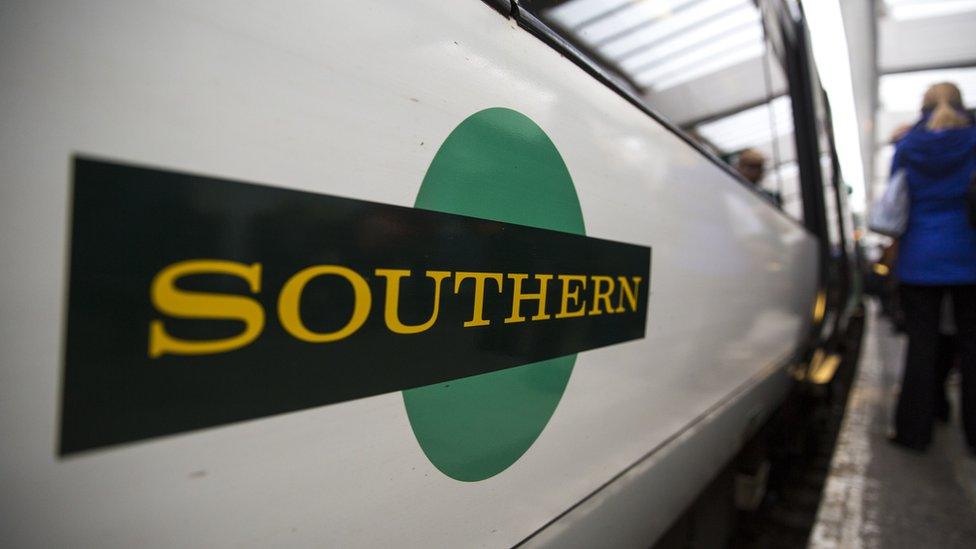Protests against train fare rises held at more than 100 stations
- Published
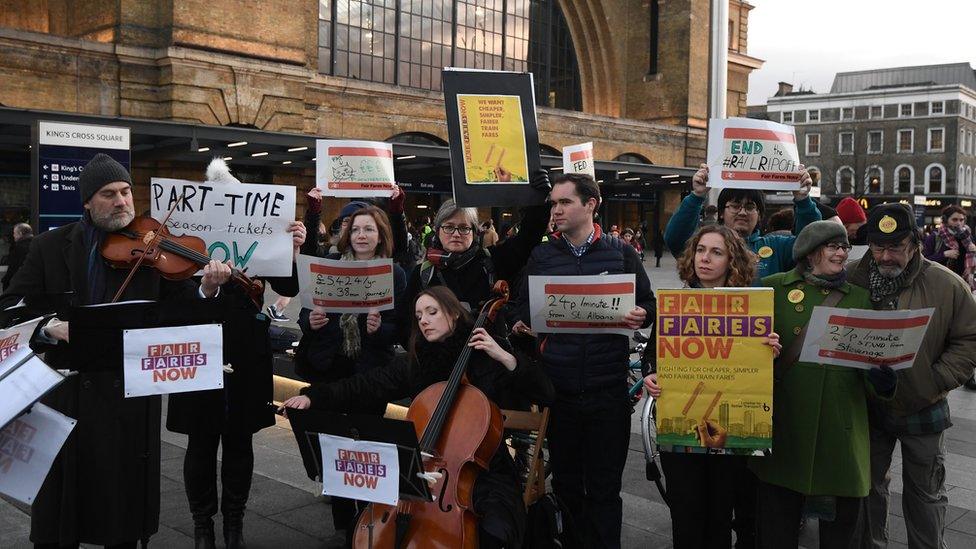
One of the protests was held at Kings Cross Station in London
Protesters have gathered at railway stations across Britain demonstrate against train fare rises.
Campaigners Action For Rail organised protests at more than 100 stations, including in London, Birmingham and Glasgow, as commuters returned to work following the festive break.
It comes after ticket prices in Britain rose an average of 2.3% on Monday.
The government said fare rises had been "fairly balanced" between passengers and taxpayers.
'Extracting value'
The union-backed Campaign for Better Transport held a protest at London King's Cross station, which was attended by shadow transport secretary Andy McDonald and shadow foreign secretary Emily Thornberry.
Mr McDonald said: "We've now seen a rise of 27% since 2010 and wages haven't kept pace with this at all.
"There is another way of doing this. We don't have to have a system that just is predicated from extracting value out of passengers all the time.
"It's about time they were put first, ahead of profits."
This year's rise in fares is the highest since January 2014, when they increased by 2.8%.
Figures vary between operators, with fares on Virgin Trains East Coast services rising by 4.9%.
The government uses the previous July's retail prices index (RPI) measure of inflation to determine increases in regulated fares, which was 1.9%.
Regulated fares account for about 40% of all tickets and include season tickets on most commuter routes and some off-peak return tickets on long-distance journeys.
Train operating companies set the prices of other tickets but are bound by competition rules.
The increases do not apply to Northern Ireland.
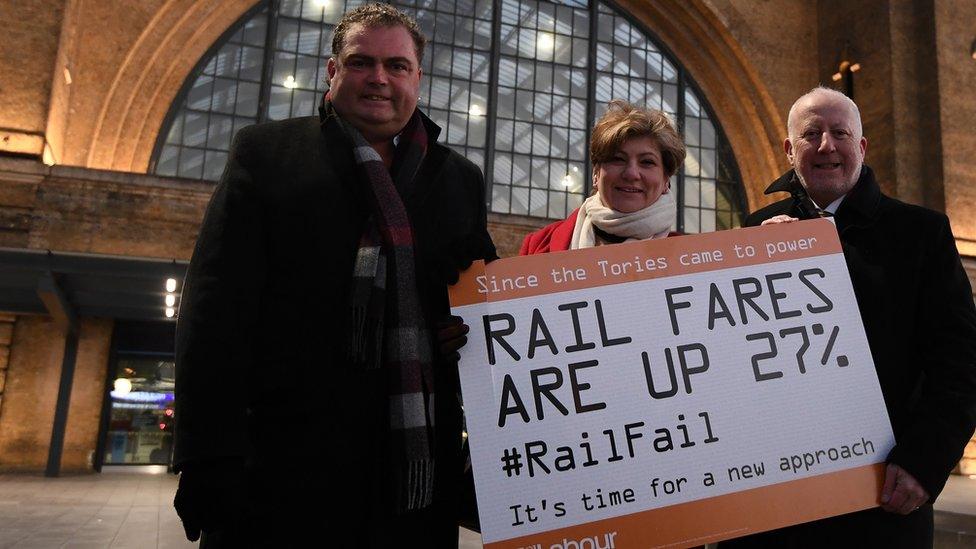
Shadow transport secretary Andy McDonald and shadow foreign secretary Emily Thornberry (right and centre) joined one of the protests
Bruce Williamson, of independent campaign group Railfuture, called on the government to use the Consumer Prices Index (CPI) - currently 0.6% - for regulated fare rises, rather than RPI, claiming it is a "much more accurate figure" for measuring inflation.
But the Rail Delivery Group (RDG), which represents train operators, said about 97p in every pound paid by passengers was going back into running and improving services.
RDG chief executive Paul Plummer added: "Money from fares is helping to sustain investment in the longer, newer trains and more punctual journeys that passengers want."
Virgin Trains East Coast said an overhaul of its pricing strategy meant there would be 10,000 more discounted advanced fares available every week.
Transport Secretary Chris Grayling said: "We are delivering the biggest rail modernisation programme for more than a century, providing more seats and services.
"We have always fairly balanced the cost of this investment between the taxpayer and the passenger."
- Published2 January 2017
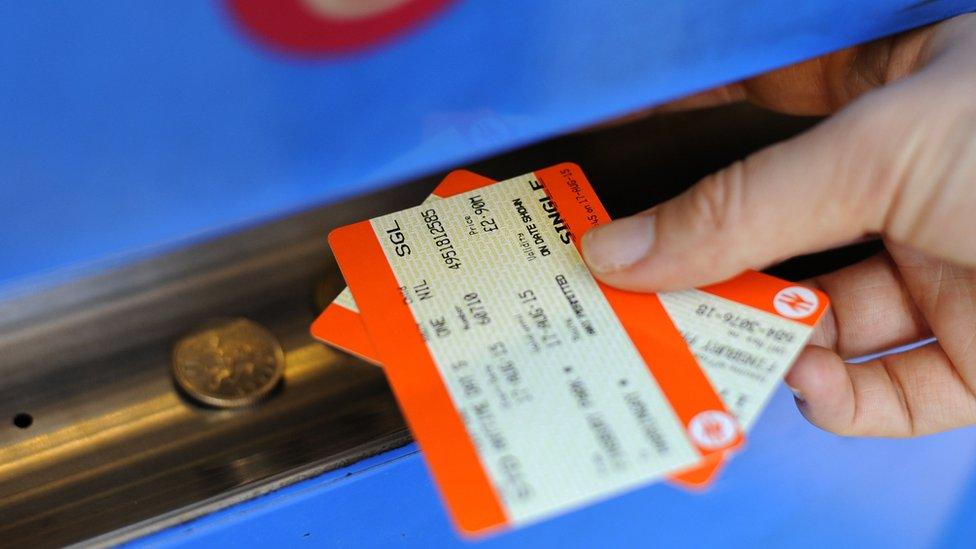
- Published1 January 2017
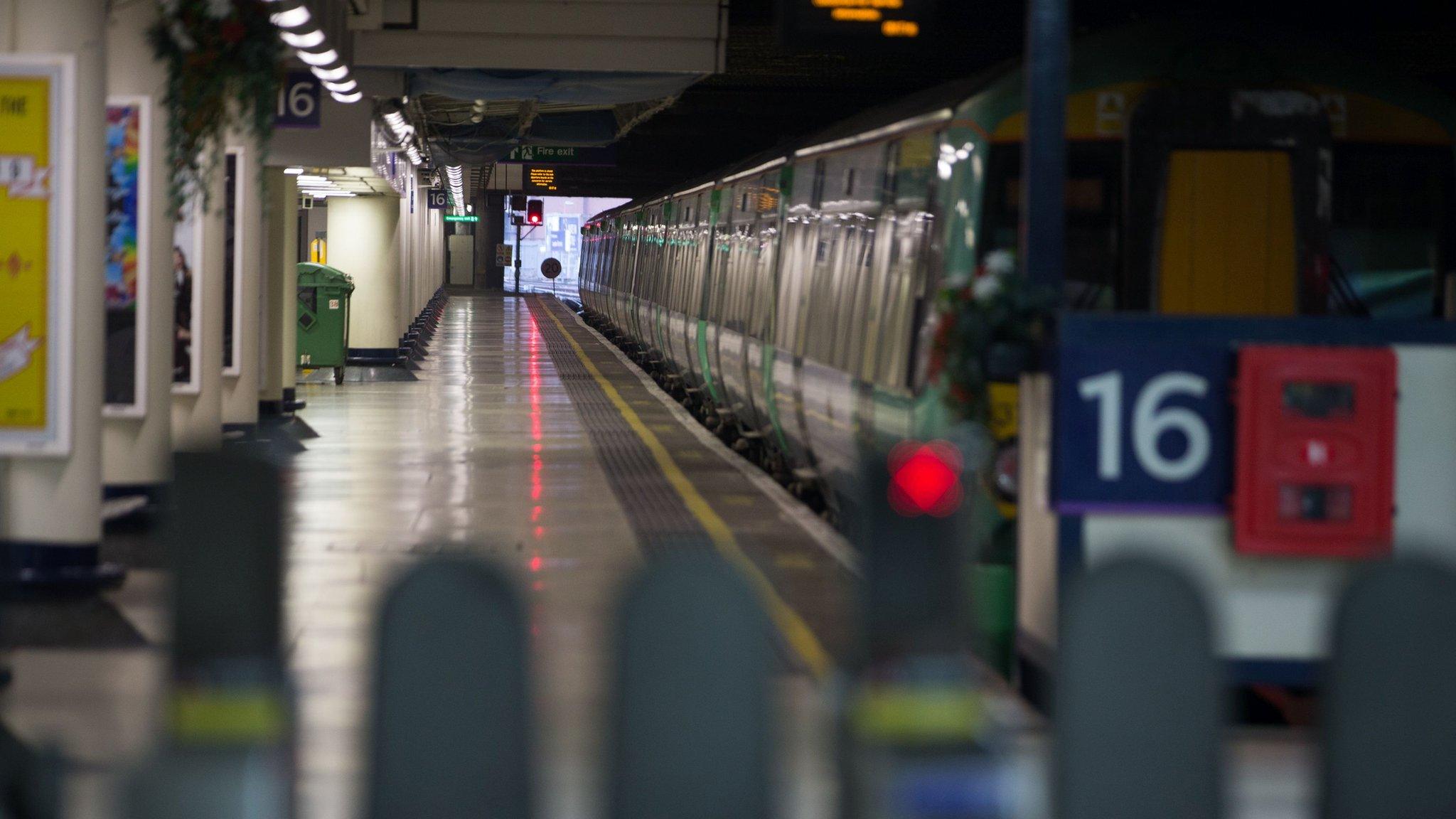
- Published19 January 2017
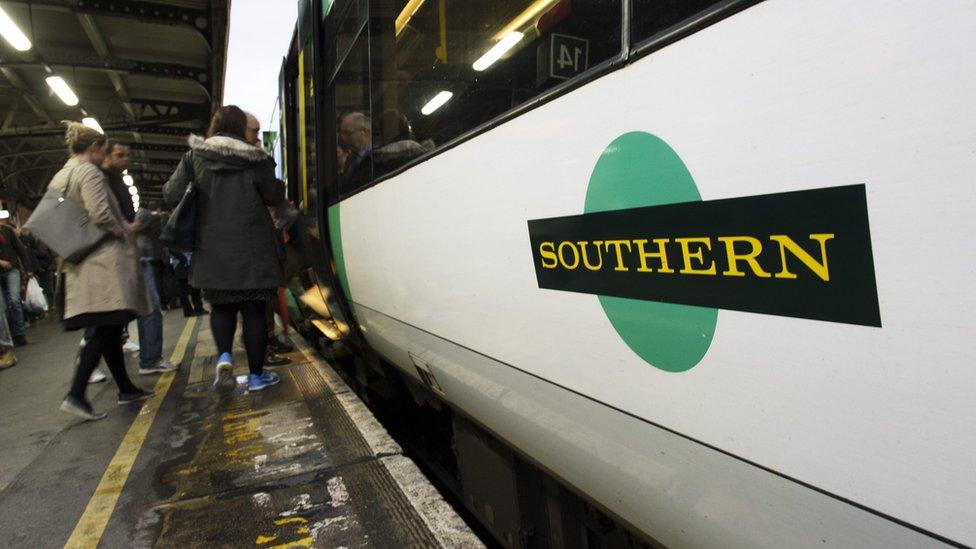
- Published13 December 2016
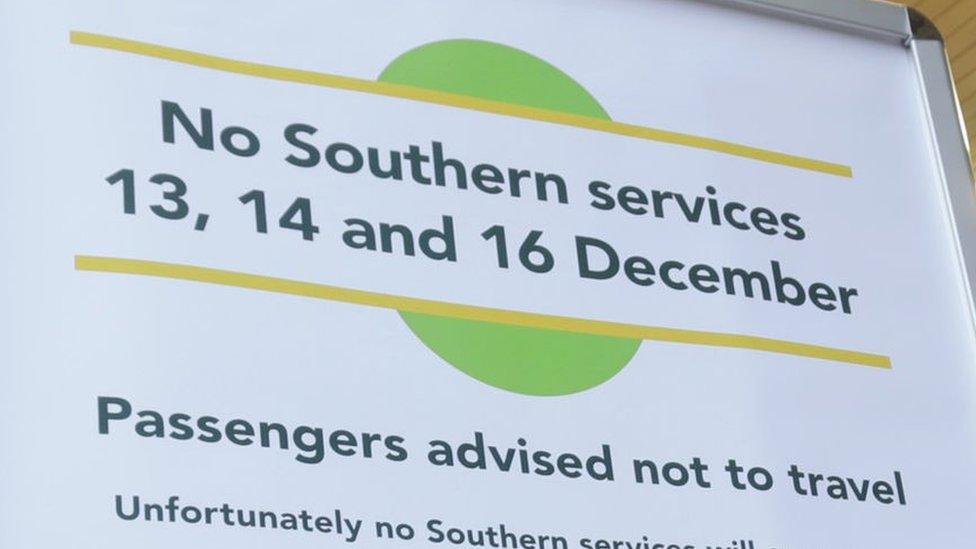
- Published13 December 2016
- Published2 December 2016
